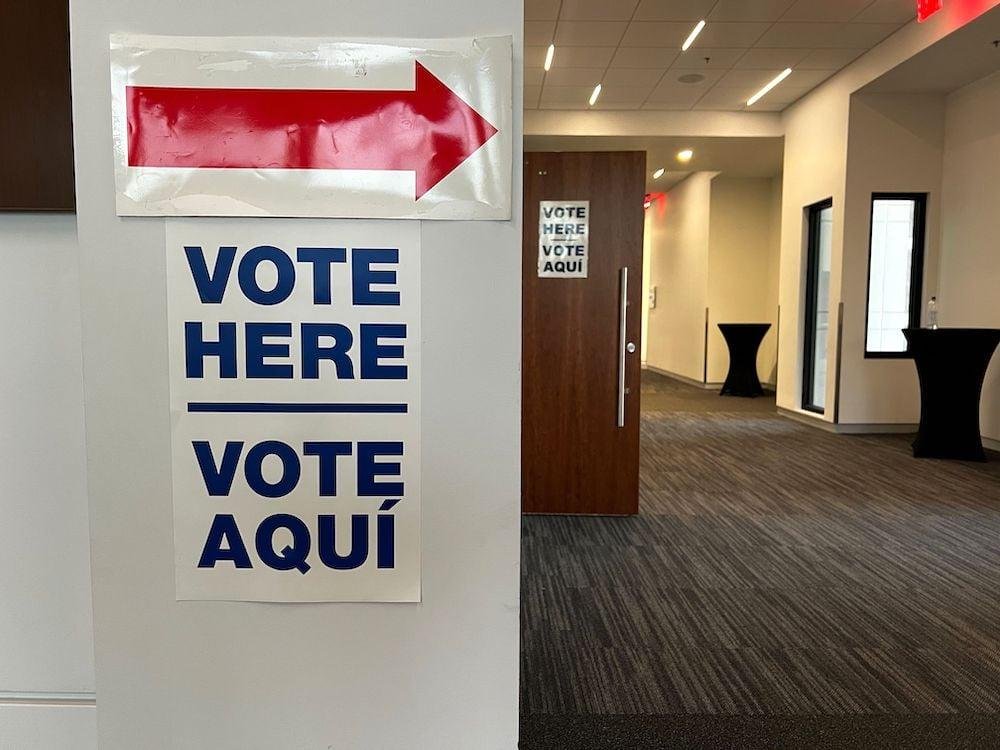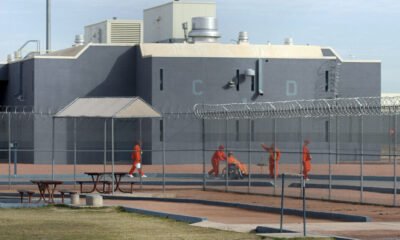arizona
How Baseless GOP Accusations of Noncitizen Voting Threaten Eligible Voter Rights

During Tuesday’s presidential debate, former President Donald Trump reiterated his claim that “elections are bad,” alleging that Democrats are attempting to facilitate illegal voting by immigrants. Fact-checks continue to debunk these assertions, noting the absence of substantial evidence for widespread noncitizen voting, an event experts deem highly uncommon.
Despite the lack of evidence, Republicans insist that noncitizen voting poses a significant threat needing legislative action. This narrative has real implications for voters, with Trump urging Republicans to halt government operations until legislation mandating proof of citizenship for voter registration is enacted. The House narrowly passed this legislation, known as the SAVE Act, in July, but its fate now rests with a Democratic-led Senate that has shown no inclination to proceed.
Recently, House Republicans attempted to attach the SAVE Act to a critical funding bill, which successfully passed its initial vote. However, House Speaker Mike Johnson later postponed the scheduled debate, stating the need to gather support amid diverging views within his party.
Democrats view the citizenship evidence requirement as a “poison pill” that aims to destabilize election integrity. Current regulations already compel individuals to affirm their citizenship under penalty of perjury during registration. Risks for any noncitizen attempting to vote, including legal repercussions and potential deportation, are significantly high.
The focus on noncitizen voting appears strategically aimed at casting doubt on future election results, particularly should Trump fail to secure a win. Trump framed similar allegations in the past, claiming illegality influencing his loss of the popular vote in 2016, despite ultimately winning the election.
David Becker, executive director of the Center for Election Innovation and Research, critiques this legislation as a method for justifying claims about the integrity of future elections rather than addressing actual voter roll issues.
In recent hearings held by two House committees, several Republican secretaries of state advocated for the SAVE Act. Meanwhile, Democrats repeatedly emphasized the rarity of noncitizen voting, with New Mexico Secretary of State Maggie Toulouse Oliver highlighting its impact on public confidence in electoral processes.
Allegations surrounding noncitizen voting have prompted legal battles and administrative scrutiny across multiple states. In Texas and Alabama, questions have emerged about the legal validity of voter roll purges that risk disenfranchising eligible citizens, especially naturalized residents mistakenly flagged as noncitizens.
Alabama Secretary of State Wes Allen admitted potential misidentifications among flagged individuals. He pointed out that naturalized citizens must update their voter registration to reflect their citizenship status, underscoring the existing barriers to accurate voter eligibility assessments.
Recent historical instances bolster concerns about inaccurate voter roll cleaning efforts. A 2019 incident in Texas, where 95,000 voters were incorrectly identified as noncitizens, led to widespread scrutiny, lawsuits, and a subsequent resignation of the Secretary of State.
Advocacy groups are now hesitant about the Texas governor’s recent announcement regarding the removal of “potential noncitizens,” demanding clarity on the criteria for such classifications and ensuring compliance with procedural guidelines established after previous controversies.
The Republican focus on noncitizen voting is echoed in discussions in congressional hearings, with some members framing these removals without qualifiers, promoting undue concern about election integrity. Election officials have worked diligently to counteract these narratives, explaining existing safeguards to ensure eligible voters are not unjustly harmed.
Former Alabama Secretary of State John Merrill emphasized the thorough checks conducted before new voters are registered. Election officials across various states, including Texas, maintain that stringent processes are in place to verify voter qualifications and counter any misconceptions regarding noncitizen participation.
In Georgia, a review by Secretary of State Brad Raffensperger revealed that no potential noncitizens were allowed registration or voting between 1997 and 2022, further highlighting the existing safeguards against unauthorized voting.
Currently proposed legislation like the SAVE Act aims to enforce more stringent citizenship documentation requirements for voters. However, substantial barriers exist, particularly affecting marginalized communities, as research shows millions of citizens may lack readily available proof of citizenship.
Arizona already restricts registrants without appropriate documentation to a limited voter status, qualifying them only for federal elections. Data indicates that younger voters, particularly students, are disproportionately impacted by these limitations, raising concerns about equitable voting access.
This article was originally published by Votebeat, a nonprofit news organization focusing on election administration and voting accessibility.
















